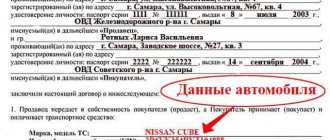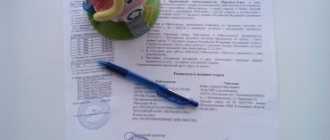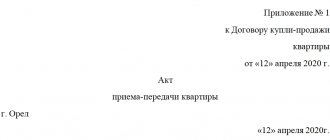Is it possible to somehow return a car purchased second-hand under a sales contract? Since for some people a used car is the only way to acquire transport, it is necessary to study all the nuances in detail so as not to lose money in the future. If you buy a car at a car dealership, then everything is simple, and if any defects are found, you can return it and get your money back. If the seller is a private person, then everything becomes more complicated.
Let's imagine this situation: a person bought a car and came home happy. The next day he discovered that the engine would not start and an inspection revealed serious technical problems that had not previously been mentioned. What to do in this case? Is it possible to restore the purchase and sale agreement, or rather, return the money?
First of all, you need to contact the seller and tell him about this situation. Perhaps he will agree to return the cost of the car or at least part of it to repair the car. However, this is practically impossible, and therefore you need to be prepared for refusal. As arguments, the seller can say the following:
- there is no more money, the entire amount has been spent;
- the car was in good working order, you did something to it;
- some part itself has worn out;
- you checked the car and saw what you were purchasing.
The seller can simply refuse - that is his right. In such a situation, you should try to return the car in other ways, if provided by law.
Is it possible to get a refund for a car purchased from a private person?
The practice of selling used cars shows that no matter what precautions are taken by buyers, there are still possible cases of hidden “surprises” that the seller kept silent about after concluding a purchase and sale agreement. For example, you bought a car, and it broke down literally the next day.
In this regard, you have a completely understandable desire to terminate such an agreement and get your money back. Often, few people know that if defects in the car are discovered that are not specified by the seller, you can demand - clause 1 of Art. 475 Civil Code of the Russian Federation:
- A proportionate reduction in cost.
- Refunds for required/performed repairs.
- Free elimination of deficiencies within a reasonable time.
And if a significant violation of quality requirements is detected, the buyer has the right to refuse to fulfill the sales contract and demand a refund of the amount paid for the car - clause 2 of Art. 475 of the Civil Code of the Russian Federation.
In addition, the seller, under the sales contract, is obliged to transfer the car to the buyer free of any encumbrances. If he fails to fulfill this obligation, the buyer has the right to demand - clause 1 of Art. 460 Civil Code of the Russian Federation:
- Reducing prices.
- Termination of the contract, unless it is proven that he knew/should have known about the rights of third parties to this product.
Keep in mind that if the price in the contract is underestimated, you can only count on a refund of the amount specified in the agreement.
I'll talk about this in more detail later.
Important! When concluding a contract for the purchase and sale of a car between individuals, the provisions of the Law of the Russian Federation “On the Protection of Consumer Rights” are not subject to application.
What constitutes a significant quality violation?
According to Art. 475 of the Civil Code of the Russian Federation, it is possible to refuse to execute a sales contract and return the amount of money paid for the goods in the event of a significant violation of the quality of the goods, i.e. after purchase you found:
- Fatal defects - cannot be eliminated through repairs and lead to the impossibility or inadmissibility of using the car.
- Defects that require disproportionate costs/time to eliminate or that reappear after repairs.
All other deficiencies are considered ordinary (insignificant) and are not grounds for a refund.
The significance of the defect is established exclusively by the court on the basis of the provisions of the law and the result of a forensic auto-technical examination.
Significant shortcomings (defects of the unit, unit) include - clause 3.3 of the Methodological Guide:
- Disadvantages that affect the reduction of the service life of the product and the loss of its marketable value.
- An irreparable defect in a base part of a product that reoccurs after it has been eliminated.
- A defect/set of defects, the cost of eliminating which with the loss of the product’s marketable value is at least 10% of the cost of a new product.
- Defect in supporting structure (body/frame).
- Defects of at least three main units (engine, gearbox, transfer case, rear axle assembly, front axle assembly, etc.), satisfying one of the conditions specified in the previous paragraphs.
What are the consequences of transferring a car with an encumbrance?
The transfer by the seller under a purchase and sale agreement of a car with an encumbrance is grounds for termination of the agreement, unless it is proven that the buyer knew or should have known about it - Art. 460 Civil Code of the Russian Federation.
An encumbrance is understood as a certain restriction that does not allow the owner to dispose of the car at his own discretion, that is, the buyer will not be able to register it in his name with the State Traffic Safety Inspectorate.
You have the right to terminate the contract if the car is: pledged (for a consumer loan/loan/car loan/leasing), seized, or a ban on registration actions has been imposed in relation to it (for example, when dividing property by spouses during a divorce in court).
Important! If the car you purchased is listed as stolen, it is subject to seizure by traffic police officers at the impound lot as material evidence. Demand a refund from the seller of the money paid for the car.
See also: How to return an advance payment for a car at a car dealership if you change your mind about buying - instructions for 2021
How long does it take to return a car to its former owner?
Requirements related to the discovery of hidden defects in a car can be presented by the buyer - clause 2 of Art. 477 Civil Code of the Russian Federation:
- Within a reasonable time, but within 2 years from the date of transfer of the goods to him.
- Within a longer period, if it is established by law or the purchase and sale agreement.
If it is revealed that the car is encumbered (it is under arrest/stolen/pledged, etc.), demands are made at the moment when the buyer becomes aware of it.
Collect evidence
For example, if the contract contains a phrase such as “The car has been inspected by the buyer, I have no complaints,” then it will be almost impossible to prove that the car is faulty and to return the car and the money back.
For any court, the main thing is documentary evidence of your material damage. Therefore, you will have to collect all the evidence, all the documents confirming that the car cannot be used as a vehicle.
Remember that fatal deficiencies will need to be proven to you. You will have to do an examination at your own expense, which will show that the malfunction occurred precisely because the seller did not inform you about the shortcomings, that he knew them, but hid them. That there was a clear deception regarding the quality of the product.
What nuances will not allow you to return the money paid?
Money cannot be returned in the following cases:
- Failure to comply with the written form of the purchase and sale agreement.
- The presence of stated shortcomings (defects) in the agreement, and, accordingly, the buyer’s agreement with them at the time of purchase.
- The document contains information about the buyer’s absence of claims to the technical condition of the transferred car/the presence of an act of acceptance and transfer of property, which is an integral part of the contract.
- Availability of a technical report from an independent expert on the condition of the car at the time of purchase with a description of all its defects and familiarization with it to the buyer. The reason for the inability to use the car is a malfunction from this list.
Is it worth getting involved with returning the car?
Weigh all the pros and cons.
Before demanding termination of the purchase and sale agreement and a refund of money, carefully analyze the current situation:
- Make sure that the shortcomings are really significant or that the encumbrance prevents you from using the car.
- Don’t forget that you will still have to pay for a lawyer/collection of documents/payment of state fees/examination.
You can safely start if:
- The amount of such costs will be less than the cost of car repairs.
- The existing encumbrances on it/fatal defects do not allow you to use it/register it with the traffic police department.
We buy used cars
Using the Internet it is much easier to search for used cars. Having studied the condition of transport in detail, you can conclude a profitable deal. At the same time, you need to remember that when buying second hand, not every seller guarantees the serviceability of the vehicle.
To successfully conclude a transaction, it is advisable to make sure that the seller is honest. If the car owner is not against having his vehicle checked at a service station, there is a high probability that everything is fine with the car.
It is also recommended to request information about transport from the traffic police. This will ensure that there are no legal encumbrances on the car.
If you decide to purchase a used car, you need to meet the seller in person and evaluate the vehicle. By focusing solely on the photo, the buyer risks getting something that is not what he expected.
Find out more about how to buy a used car.
How to terminate a car's contract and get your money back
Termination of a purchase and sale transaction between individuals is possible:
- By agreement of the parties.
- Judicially.
I'll talk about this in more detail later.
How does termination of a contract occur by agreement of the parties?
Termination of a contract by agreement of the parties is the simplest and least expensive way to bring the parties to their original position. It is used when there is no conflict of interest and the parties are ready to terminate the contract.
In practice it looks like this:
- If the purchase and sale agreement was concluded in simple written form and the car was not re-registered, it will be enough to draw up and sign an agreement to terminate it. From this moment the transaction will be considered terminated.
- When a contract is concluded and certified by a notary, the agreement on its termination must also be certified by him.
- When changes have already been made to the PTS (vehicle passport), the entry is crossed out and the following is written in the “Special notes” field: “The purchase and sale agreement is terminated by agreement of the parties,” the signatures of each of the parties should be placed next to it (they do not need to be certified).
- If the vehicle has been re-registered with the traffic police by this time, the parties should sign a termination agreement and re-register it.
How to prepare a claim
If, after negotiations with the seller on termination of the contract and return of the car and money, a refusal is received, prepare a written claim to the seller.
The claim must be made in writing in 2 copies and must contain the following:
- Information about the seller - full name, place of residence.
- Information about the buyer - full name, place of residence.
- The title of the document is “Claim”.
- The circumstances under which the car was purchased (date, place, cost, information about the purchase and sale agreement, etc.).
- Information about the car - make, engine number, body number, identification number (VIN), title series and number, body color, year of manufacture.
- The essence of the claim is what faults (defects)/encumbrances were identified and what actions were taken by the buyer.
- Links to legal norms.
- Requirements for the seller - to terminate the contract of sale and purchase of the vehicle, to return the funds paid in payment for the used car.
- A warning to the seller about legal proceedings if he refuses to terminate by agreement of the parties.
- List of attachments to the claim.
- Date and personal signature of the applicant.
This document should be sent by mail in a certified letter with a list of the contents at the place of registration/residence of the seller. Another copy of the claim remains with the buyer. Be sure to keep your shipping receipt.
The deadline for responding to a claim is 30 days from the date of its delivery to the seller, unless a different period is established by the contract (clause 2 of Article 452 of the Civil Code of the Russian Federation).
Important! If the seller evades receiving a valuable letter, the message is considered delivered at the moment when it was received by him, but was not delivered to him or he did not familiarize himself with it due to circumstances beyond his control - Art. 165.1 Civil Code of the Russian Federation.
Thus, the notification can be considered delivered to the seller on the day of its return according to the shipment tracking report posted on the official website of Russian Post.
Sample claim for termination of car contract between individuals (DOC 38 KB)
What other actions can the buyer take before submitting a claim?
Since you need to prove that a used car has a defect before purchasing it from the seller, I recommend taking the following steps:
- If the car has previously been serviced at a certain service station or has a valid warranty, contact the service staff. They can help you with the necessary evidence. These can be acts of acceptance and transfer of used cars for repair, checks, inspection reports and other documents confirming the presence of a malfunction even before the conclusion of the contract.
- If it is impossible to use the above method of clarifying the circumstances, you can order an examination. You will have to pay its cost yourself. If its result confirmed your beliefs, a copy of the expert’s opinion should be attached to the claim and sent to the seller.
How to terminate a deal in court
Prepare convincing evidence for the court
If the parties were unable to resolve the issue pre-trial and the seller did not return the money within 30 days, the buyer should prepare a statement of claim in court.
File a claim with the office in person/through a representative. Sending is also possible by mail or through the State Automated System “Justice” portal on the court’s website. When a case is assigned for consideration, participate.
Wait until the positive decision comes into force and receive a writ of execution. If the court makes a negative decision, appeal.
Send the writ of execution for enforcement to the bailiff service.
Please keep in mind that even if your claim is successful, a refund is not guaranteed. Practice shows that if the seller does not have a permanent official income/liquid property, you may find yourself in an unpleasant situation:
- You need to return the car to the previous owner.
- Refunds will take time or will simply be impossible. Therefore, when submitting a writ of execution for collection, ask to immediately seize the car for its subsequent sale within the framework of enforcement proceedings.
How to file a claim
The statement of claim is drawn up in writing and must meet the requirements of Art. 131 Code of Civil Procedure of the Russian Federation. In the text please indicate:
- The name of the court to which you are applying (I will tell you in more detail later).
- Information about the plaintiff - full name and place of residence, as well as contact details.
- Information about the defendant - full name, place of residence/work, and also, if you know one of the citizen’s identifiers (SNILS, INN, passport series and number, driver’s license series and number, vehicle registration certificate series and number).
- The cost of the claim is determined based on the amounts recovered.
- The title of the document is “Statement of Claim for termination of the purchase and sale agreement and recovery of funds.”
- Circumstances of purchasing a used car and the occurrence of a malfunction/identification of the fact of an encumbrance.
- Evidence of the validity of the claims.
- Information on compliance with the pre-trial procedure for contacting the defendant.
- Links to legal norms.
- Request to the court to terminate the contract and recover from the defendant in favor of the plaintiff the cost of a used car, money to pay for the examination/state duty, etc.
- List of attachments to the claim.
- Date of compilation.
Be sure to sign the application in person.
Important! If the buyer did not conduct an auto technical examination before going to court, the pleading part of the claim should petition the court to order one to confirm the existence of a defect before the transaction was completed.
What documents should be attached to the claim?
The following documents must be attached to the statement of claim:
- Notice of service of a copy of the claim to the defendant.
- Calculation of amounts collected.
- A copy of the vehicle purchase and sale agreement.
- Vehicle acceptance certificate, if drawn up.
- Payment documents confirming payment for the car.
- A claim for termination of the contract and return of funds, as well as documents confirming its submission by the defendant.
- Written response to the claim (if any).
- Expert opinion on the presence of faults (if any).
- Certificates of encumbrances on the car.
- Receipt for payment of state duty.
- Other documents.
How much should I pay the state fee for filing a claim?
A document confirming payment of the state duty must be attached to the claim. Its size is determined as follows.
Since the claim contains claims of both a property and non-property nature, a state fee must be paid at the same time:
- For consideration of non-property claims (termination of a vehicle purchase and sale agreement) in the amount of 300 rubles. — pp. 3 p. 1 art. 333.19 Tax Code of the Russian Federation.
- For property - from 400 to 60,000 rubles. depending on the value of the claim - paragraphs. 1 clause 1 art. 333.19 Tax Code of the Russian Federation.
Important! Disabled people of groups I and II are exempt from paying fees when going to court - paragraphs. 2 p. 2 art. 333.36 Tax Code of the Russian Federation. To confirm the benefit, a supporting document must be attached to the claim.
Which court should I go to?
The statement of claim is filed with the district (city) court at the place of residence of the defendant - Art. 28 Code of Civil Procedure of the Russian Federation.
How long does it take for a case to be heard in court?
Civil cases are considered by the court before the expiration of 2 months from the date of filing the statement of claim - Art. 154 Code of Civil Procedure of the Russian Federation. This period may be extended, depending on the complexity of the case, by the chairman/deputy chairman of the court by no more than 1 month.
What to do if the court rejects the claim
If the court makes a decision to refuse to satisfy your stated demands, you can appeal it within 30 days from the date of its decision - Art. 321 Code of Civil Procedure of the Russian Federation.
If significant deficiencies are not confirmed or there are no encumbrances on the car, you can try to invalidate the purchase and sale agreement. This can be done by proving:
- Imaginary/feigned nature of the transaction - clause 1 of Art. 170 GK.
- Significant misconception - Art. 178 Civil Code of the Russian Federation.
- Completion of a transaction under the influence of deception, threat or unfavorable circumstances - Art. 179 of the Civil Code of the Russian Federation.
Important! A demand to recognize a voidable transaction as invalid, as well as to apply the consequences of its invalidity, can be filed within 1 year. The period begins from the moment when the violence/threats ceased or from the day when the person learned/should have known that his right was violated - clause 2 of Art. 181 Civil Code of the Russian Federation.
What can be recovered through court?
Claims may consist of the following types of penalties:
- Costs associated with the use of legal services.
- A fine of up to 50% of the cost in favor of the consumer.
- Compensation for moral damage, if its existence is proven.
- Penalty for violation of deadlines for satisfying demands on the part of the plaintiff. Usually this is 1% of the cost of the car, the amount is charged for each day of delay.
- Total price of the vehicle.
A claim always becomes the basis for initiating legal proceedings on a particular claim. Articles 131-132 of the Civil Procedure Code of Russia are specifically devoted to issues related to the preparation of documentation.
Article 132. Documents attached to the statement of claim
The following are attached to the statement of claim:
its copies in accordance with the number of defendants and third parties;
a document confirming payment of the state duty;
power of attorney or other document certifying the authority of the plaintiff’s representative;
documents confirming the circumstances on which the plaintiff bases his claims, copies of these documents for defendants and third parties, if they do not have copies;
evidence confirming the implementation of the mandatory pre-trial dispute resolution procedure, if such a procedure is provided for by federal law or agreement;
calculation of the recovered or disputed amount of money, signed by the plaintiff, his representative, with copies in accordance with the number of defendants and third parties.
The main thing is to take care of providing passport and contact information for each party. All information relevant to the case must be indicated. It will be useful to refer to the regulations that make this or that action possible.
At the choice of the plaintiff, the claim can be filed at the place of residence of himself, the defendant, or at the address where the agreement for the purchase and sale of the vehicle was concluded. Most often, such cases are considered by courts of general jurisdiction.
After all, the cost of a claim is always higher than that of cases considered by the world court.
How to return a car to a dealer
When purchasing a car through a reseller, your risks increase significantly.
Determine what type of resale the reseller used:
- By general power of attorney - a power of attorney is issued by the owner of the car to the buyer with the right to sell, and the latter entrusts the vehicle at his own discretion.
- On behalf of the owner - his data is filled in the DCP, he puts his signature on it, and the buyer’s data is filled in at the time of the transaction. The repurchase does not appear in the contract. If the seller does not agree to such a scheme, the intermediary concludes a regular deal with him, and sells the car to the new buyer in a different way, with the data of the previous owner, but with his fictitious signature.
- According to two DCTs, the first agreement is concluded between the owner of the car and the reseller, but the latter does not register the car. He concludes the second contract on his own behalf with the buyer, and the latter already re-registers the car in his name.
- With registration in your name - in this case, the contract is concluded with the buyer on behalf of the intermediary.
Carefully re-read your purchase and sale agreement and make sure that the seller is a reseller and not another individual.
If the purchase and sale agreement for a car was concluded on behalf of a reseller, the same procedure applies and the same reasons for return apply as when purchasing a car from an ordinary individual.
If the seller of the car was a third party who was not present at the transaction, the chances of returning the car tend to zero. This is due to the fact that:
- When selling under a general power of attorney, the outbidder may simply disappear and stop communicating after the transaction is completed, and the real owner during this period revoked the power of attorney or died (in this case, the document automatically becomes invalid).
- The intermediary put a fictitious signature of the seller in the contract, which entails the invalidity of the transaction. This may become clear when registering the car (for example, when it is listed as stolen), etc.
Story 1: how a resident of Krasnodar bought a car for 847 thousand, but was sued for 2.2 million
A man bought a Hyundai Solaris for 847,900 rubles. The manufacturer has established a warranty of 5 years from the date of purchase with timely maintenance.
After some time, the air conditioner in the car broke down. The driver contacted the salon. The case was declared under warranty and the air conditioner was replaced. But the problems did not end there: several months passed, and the generator broke down. It was also replaced under warranty.
A few weeks later, the car broke down again, but this time the man no longer wanted to repair it: he was tired of something constantly breaking down in a new car. He turned to the manufacturer with a demand to exchange the car for a similar new one.
The manufacturer offered to conduct a quality check, but the letter with the offer arrived too late for the man. In addition, the driver sent a complaint to Hyundai Motor Manufacturing Rus LLC, and another one responded to him. He decided not to waste time on an examination from the manufacturer and went straight to court.
What arguments did the parties give?
The car owner presented the following arguments in court:
- the car broke down several times in a short period of time, which means it is defective;
- he sent a written complaint to the manufacturer, and some other company responded by mail;
- the manufacturer offered to undergo an examination on May 10 at 10:00, but the letter arrived on May 10 at 10:20, that is, the man physically would not have had time for the examination.
In court, the plaintiff changed his mind about exchanging the car for a new one and demanded monetary compensation:
- 847,900 rubles - for a car,
- 115,000 rubles - for forensic examination,
- 50,000 rubles - for legal costs,
- 2,297,809 rubles - as a penalty for poor-quality goods and late response to the claim,
- 250,000 rubles - for moral damage,
- 12,625 rubles - for diagnostics, tow truck and postage.
In total - almost 4 million rubles.
The manufacturer did not agree with the driver’s arguments and the amount of the penalty. They suspected the man of fraud: he bought the car second-hand, and not directly from the dealer, so the driver supposedly had no evidence that it was a factory defect. The man refused to check the quality. Therefore, at the time of receiving the claim, the manufacturer had no evidence of the malfunction; according to them, no one shied away from fulfilling the buyer’s requirements.
What the courts said
The district court ordered an examination to determine whether the car actually had manufacturing defects. The examination showed that there was a defect. The manufacturer did not appear for this examination, but that was his business; the court had no reason to doubt its conclusions.
The court decided to recover from the manufacturer:
- 847,900 rubles - for a car.
- 790,000 rubles - as a penalty (the plaintiff asked for 2 million, but the court considered the amount unreasonable).
- 415,725 rubles - fine for evading compliance with consumer requirements.
- 115,000 rubles - for a forensic examination.
- 50,000 rubles - for legal expenses.
- 25,000 rubles - for moral damage.
- 5,545 - for damages caused.
It turned out that in total the manufacturer must pay the plaintiff 2,249,170 rubles.
The manufacturer did not agree with the decision of the district court and appealed to the regional court, but they rejected him there too. Then he filed a complaint with the Supreme Court, which recognized the decisions of previous instances as fair (Determination of the Supreme Court No. 8-KG20-46).
Main conclusion
Since the man was included in all documents as the owner, he could qualify for warranty service. The manufacturer did not respond to the claim in a timely manner and evaded paying money. The decisions of the district and regional courts remained in force, the man received 2,249,170 rubles.
How to return a car to an individual seller if there is a deposit
A buyer who has purchased a pledged car should know the following:
- The seller is obliged to transfer the car to the buyer free of any encumbrances.
- The pledgor (seller) has no right to dispose of the pledged item without the consent of the pledgee - clause 2 of Art. 346 of the Civil Code of the Russian Federation.
- When the title to the pledged property is transferred from the seller to the buyer, the right of pledge remains in force. In this case, the buyer takes the place of the pledgor and assumes all his responsibilities - clause 1 of Art. 353 Civil Code of the Russian Federation.
Consequently, the buyer can appeal to the former owner with a claim for termination of the contract and return of funds, and if the seller refuses, he can go to court with similar demands on the basis of clause 1 of Art. 460 Civil Code of the Russian Federation.
Important! If the car was pledged and information about this was entered into the register of pledges, and the buyer did not check this fact, the pledge holder has the right to foreclose on the car if the seller fails to fulfill its obligations.
FAQ
Q: How can I return a car to the seller under a sales contract within 14 days?
A: Purchase and sale transactions made by individuals are not subject to the provisions of the Russian Law “On the Protection of Consumer Rights”, and therefore it is impossible to return a used car within 14 days from the date of signing the contract.
Q: I bought a car, but it broke down. I want to return my money, tell me how to do this?
A: If a car was purchased from an individual, and when purchasing it, the seller kept silent about its significant shortcomings and did not indicate them in the policy, you can raise the issue of a refund. However, it will be necessary to prove that the defect arose before the transaction.
Q: Can the buyer return the car back to a private person if the mileage of the car is incorrect?
A: The chances of termination of the contract are quite high, since the buyer is being deceived. However, this fact will need to be proven. For example, the vehicle’s mileage at the time of sale was indicated in the DCP, and a technical examination will establish the fact of twisting. If you can confirm the connection between its breakdown and the twisted mileage, you can demand full compensation from the seller for losses.
Q: If the seller kept silent about the fact of an accident when selling the car, will this be grounds for returning it?
A: Everything will depend on the repairs performed. If after it the car is restored with high quality, there should be no complaints. But if, for example, the geometry of the body was violated and this affected the driving performance, this can be considered misleading the buyer and a return is quite possible.
Q: At whose expense is the examination carried out when resolving the issue of returning a car through the court?
A: When a court orders an auto technical examination, as a rule, its cost is paid by the initiator, and then such costs are distributed in proportion to the requirements satisfied.
The most important things about a used car in the legislation of 2021!
So, from the point of view of the law, a car purchase and sale transaction is actually a voluntary exchange of property for money. Such a transaction must be certified by an appropriate agreement, where all conditions must be specified. We provided the correct sample of PrEP in our special article.
In this article we will look at 2 options that differ greatly in return order:
- if you need to return a used car to an individual after purchase (the information will also be useful if you are a seller and they want to return a low-quality car to you),
- If you return a used car to the car dealership that sold it to you.
The first thing you need to know is that deception during a transaction is actually prohibited by law. That is, the 2021 law explicitly states that both the seller and the buyer must act in good faith. Specifically, the Supreme Court in its judicial practice also indicated that each party to a transaction has the right to count on the good faith of the other party. That is, when buying a car that is intended for driving on roads, you legally have the right to hope that all the units and components of the car do not have obstacles for such driving.
Therefore, if the car is initially sold in a broken state or after an accident, then it is highly desirable that this should be indicated in the contract of sale. That is, such a position does not make it mandatory to have the clause “the vehicle is in full working order” in the contract, since the buyer has the right to count on this, unless otherwise stated in the contract.
On the other hand, deception and misrepresentation are not punishable. Neither in administrative, nor, especially, in criminal law is there responsibility for this. But, since civil law directly prohibits deception regarding the properties of a product during sale, in 2021 it is possible to return a used car if such deception can be proven.
Crib
- The provisions of the Law of the Russian Federation “On the Protection of Consumer Rights” are not applicable to contracts for the sale and purchase of cars between individuals. In this case, you should be guided by the norms of the Civil Code of the Russian Federation.
- You can refuse to execute the contract and return the amount paid for the car in the event of a significant violation of the quality of the car or the presence of circumstances that do not allow its use.
- The period for returning a used car to the seller if significant defects are discovered is within 2 years from the date of its transfer to the buyer, unless a longer period is provided for by law or the purchase and sale agreement.
- You cannot return a used car that is in working order.
- To return the car and money, you should contact the seller with a written claim, and if it refuses or does not receive an answer, go to court.
Have you ever had to return a car purchased second-hand under a sales contract? Did you manage to do this?
About independent examination at the expense of sellers
If the client is not satisfied with the results after the inspection, which he organized himself, you can ask for the procedure again, only now make sure that the seller pays. This is a legal right available to every citizen.
What are the nuances when buying a car at a car dealership? Answer in video:
The timing of the verification depends on what kind of request is received from the buyer. If it is a machine replacement, it may take up to 20 days. In case of a refund, the examination takes a maximum of ten days.
But one can rarely count on the objectivity of such checks. After all, it is the sellers who choose the specialists who will do this.








